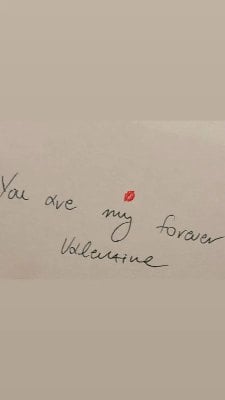Entertainment
Andrew signals desire to live alone as he, Sarah Ferguson finally part ways

Former prince Andrew wants to be on his own as he prepares to leave Sarah Ferguson amid Royal Lodge eviction.
As per reports, Andrew Mountbatten-Windsor and Fergie has prepared to go their separate ways, with reports saying the former Duchess of York plans to move to Portugal in January.
Speaking on the matter, royal expert Jennie Bond told The Mirror that she is surprised by the split as the pair had remained close for years despite no longer being a couple.
“I am surprised that it seems Sarah and Andrew are now going their separate ways. I thought they were joined at the hip, even though no longer in a romantic relationship,” Bond told the publication.
She continued, “Sarah has always been so fiercely loyal to Andrew, defending him even in the face of the most sordid allegations.
“Perhaps she no longer believes him, or perhaps Andrew now wants to be on his own.”
Bond added that, despite their divorce, they had created a stable home for their daughters, Princess Beatrice and Princess Eugenie.
“I don’t think many people would criticise a loving daughter for helping her mother,” she added.
“Whatever else you say about Sarah and, indeed Andrew, they have been good parents who have somehow created a very strong and unified household despite their divorce.”
Entertainment
Laura Dern shares ‘the most incredible experience’ with Ellen DeGeneres

Laura Dern is looking back on what she calls one of the most meaningful moments of her career, opening up about her experience supporting Ellen DeGeneres during a groundbreaking chapter in television history.
Speaking on Bowen Yang and Matt Rogers’ Las Culturistas podcast, Dern reflected on the cultural weight of appearing in the 1997 two-part episode of the sitcom Ellen in which DeGeneres’ character came out as a sexual orientation, marking the first time a lead character did so on television.
Discussing the representation, Dern said real change often only happens when someone is willing to go first, even before society is ready.
She explained that culture eventually catches up to storytelling, but only because someone takes that initial step.
Nearly 30 years later, Dern said she continues to meet people who tell her the episode helped them understand themselves or find the courage to come out.
At the same time, she was honest about the personal cost of being part of that moment.
“I had the honour and privilege of being part of Ellen DeGeneres’ coming-out episode called The Puppy Episode, and it was a massive moment,” Dern said.
She noted that, in hindsight, people often assume it was instantly celebrated, but the reality was far more complicated and painful.
When the episode aired in April 1997, Dern said the expectation was that it would lead to empathy and acceptance. She recalled the assumption that audiences would open their hearts, embrace their loved ones and allow culture to evolve naturally.
Instead, the reaction was intense and hostile.
That backlash affected everyone involved, including DeGeneres and other guest stars.
Dern revealed that those connected to the episode faced years of heightened security, along with bomb threats and the loss of sponsors and advertisers during what she described as a chaotic period.
“The world went, ‘No, no, no,’” she said, adding that DeGeneres ultimately lost her show and that it took years for things to shift.
Despite that, Dern believes the long-term impact proves why taking risks in storytelling matters.
She pointed to her strong queer fanbase, recalling being honoured at the 2020 Independent Spirit Awards when she was celebrated her as an icon.
She said moments like that show just how far culture has come.
Dern remembered holding DeGeneres’ hand as she spoke the words out loud for the first time on screen, calling it “one of the most incredible experiences of my life”.
Although Dern said she never hesitated to take part in the episode, she acknowledged that both she and DeGeneres were professionally impacted afterwards.
Still, she said there has been “no greater gift” than being there in that moment, supporting DeGeneres through an emotional and historic scene that would go on to shape television and representation for generations.
More recently, DeGeneres has marked personal milestones with her wife, Portia de Rossi.
The couple, who married in 2008 and renewed their vows in 2023, regularly share tributes to one another online.
DeGeneres has described her wife as “the greatest gift,” a reflection of the life she has built years after that pivotal episode first aired.
For Dern, the experience remains a powerful reminder of why representation matters, even when the cost feels overwhelming in the moment.
She believes culture is shaped precisely by those brave enough to move forward before the rest of the world is ready.
Entertainment
See Hailey Bieber’s Valentine Day tribute for Justin Bieber

Hailey Bieber gave fans a rare peek into her Valentine’s Day celebrations with husband Justin Bieber, sharing a light-hearted and affectionate moment that kept things personal and understated.
The Rhode founder posted to her Instagram Stories on Saturday, revealing a handwritten note that read, “You are my forever Valentine,” finished with a red kiss mark.
She followed it with a close-up snap of chocolate-covered strawberries, suggesting the couple marked the day with a cosy, low-key treat rather than anything over the top.

Hailey, 29, and Justin, 31, have been married since 2018 and are parents to a son, Jack Blues, who is just over a year old.
While the couple tend to keep their family life private, Hailey’s Valentine’s Day posts offered a gentle snapshot of their relationship at home.
Away from the holiday romance, Hailey also found herself in the spotlight last week after stepping out at the Sydney premiere of Wuthering Heights.
The model turned heads in a plunging, completely sheer black lace gown by Saint Laurent.
Hailey also leaned into romance in another way ahead of Valentine’s Day by sharing a post suggesting that her bond with Justin is written in the stars.
On Friday, Feb. 13, she reposted a picture from an astrology-focused meme account highlighting their zodiac signs. Born on Nov. 22, Hailey is a Sagittarius, while Justin, who turns 32 on March 1, is a Pisces.
The post showed the couple in PDA, with “Sagittarius” written above Hailey and the phrase “a Pisces who takes them places and lets them be wild” across Justin.
The post, which explored how different signs connect with Sagittarius in relationships, was captioned, “Which sign is our valentine this year #sagittarius #zodiac #astrology #explore #horoscope.”
Hailey liked the post and reshared the image, which was originally taken on holiday and had appeared in a black-and-white Instagram photo dump she shared back in November.
At the time, Justin reacted simply, commenting, “Oh my f—in god.”
Together for nearly eight years, the Biebers continue to share glimpses of their relationship in subtle ways, blending quiet family moments, public appearances and playful nods to their connection as Valentine’s Day came around once again.
Entertainment
Maya Hawke, Christian Lee Hutson tie knot in Valentine’s Day Ceremony

Maya Hawke and Christian Lee Hutson have officially tied the knot, exchanging vows in a romantic Valentine’s Day ceremony in New York City on Feb. 14.
The couple said “I do” during a low-key but star-studded wedding, marking a meaningful milestone in a relationship that began as a long friendship.
According to PEOPLE, the ceremony took place in the city they both call home, with close family and friends in attendance.
For the special day, Hawke wore a white wedding dress with a classic ball gown silhouette, paired with a lace veil and an oversized, feathery white coat that added a winter-ready touch.
Hutson kept things timeless in a black tuxedo, complete with a white shirt, vest and a floral boutonniere.
Hawke’s parents, Uma Thurman and Ethan Hawke, were both present to support their daughter.
Thurman was photographed in a light blue, floor-length look with matching shoes, while Ethan Hawke wore an all-black ensemble and was seen holding his daughter’s bouquet as he walked alongside her.
He later walked Hawke down the aisle. Also attending was Hawke’s brother, Levon Roan Thurman-Hawke.
Several of Hawke’s Stranger Things castmates were spotted at the ceremony, including Finn Wolfhard, Joe Keery, Gaten Matarazzo, Caleb McLaughlin, Sadie Sink and Natalia Dyer, underscoring just how personal the celebration was for the actress.
Following the ceremony, the newlyweds and their guests made their way to a reception at The Players Members Club, where the celebrations continued for hours.
The wedding comes after years of creative and personal collaboration between Hawke and Hutson.
The pair were friends for four years before their relationship turned romantic while working together on Hawke’s 2024 album, Chaos Angel.
Speaking on The Zach Sang Show in June 2024, Hawke praised the foundation of their relationship, saying, “I cannot recommend highly enough dating your friends. It’s the best.”
Hutson subtly confirmed their engagement last year during a radio interview when Hawke was referred to as his “fiancée,” replying simply, “Yeah.”
Not long after, Hawke was photographed in New York wearing a diamond ring, fuelling further speculation.
Music has remained central to their bond.
Hutson has appeared on Hawke’s albums Moss and Chaos Angel, while Hawke features on his most recent release, Paradise Pop. 10, and even joined him on stage during parts of his 2025 tour.
Reflecting on their partnership, Hawke previously said Hutson had been “so encouraging” as she grew into her identity as a musician.
Now married, the couple’s Valentine’s Day wedding feels like a fitting next chapter for two artists whose friendship, creativity and romance have grown hand in hand.
-

 Business6 days ago
Business6 days agoAye Finance IPO Day 2: GMP Remains Zero; Apply Or Not? Check Price, GMP, Financials, Recommendations
-

 Fashion6 days ago
Fashion6 days agoComment: Tariffs, capacity and timing reshape sourcing decisions
-

 Tech6 days ago
Tech6 days agoRemoving barriers to tech careers
-

 Fashion6 days ago
Fashion6 days agoADB commits $30 mn to support MSMEs in Philippines
-

 Entertainment6 days ago
Entertainment6 days ago‘Harry Potter’ star David Thewlis doesn’t want you to ask him THIS question
-

 Sports6 days ago
Sports6 days agoWinter Olympics opening ceremony host sparks fury for misidentifying Mariah Carey, other blunders
-

 Fashion6 days ago
Fashion6 days agoSaint Laurent retains top spot as hottest brand in Q4 2025 Lyst Index
-

 Entertainment1 week ago
Entertainment1 week agoPrince William worries on royal family's image: watch






